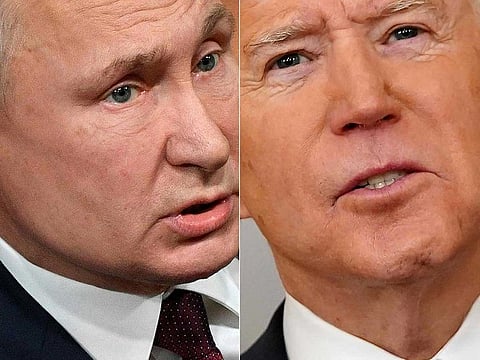Biden, Putin to Meet for First Time in Geneva
With political stakes high, diplomats will try to tease out small wins

On Wednesday in Geneva, Joe Biden and Vladimir Putin will meet as the respective presidents of their nations, with Washington eager to establish a more stable and predictable relationship with the Kremlin and Moscow eager to project its international prestige and be taken seriously as a world power.
With the political stakes high, diplomats will try to tease out small wins where the pair’s competing aims can coincide.
Relations between the two powers are at their lowest ebb since the end of the Cold War, with Russia’s annexation of Crimea in 2014 and its alleged meddling in the 2016 presidential election adding to the gaping distance between the sides.
Outcome of the summit
With recent ransomware attacks on US companies and critical infrastructure, which the US intelligence agencies blame on Russia, and Moscow’s jailing of a pro-Western opposition figure, there are enough recent tensions too that underscore the low expectations for the outcome of this summit.
Indeed, given that the Geneva summit is taking place so early into President Biden’s term suggests that Washington will be taking a far tougher line than the previous administration — but that it also eager to reset relations.
The meeting will be closely watched given too that in March, President Biden quaintly labelled the Russian leader a “killer” for allegedly overseeing a nerve-agent attack and bombing in Europe.
A difficult relationship
But we can expect some positive developments. The summit offers a chance for both sides to map out how they will manage this difficult relationship for the next four years.
Nuclear arms agreements between the world’s two largest nuclear powers offers an opportunity to ensure what both sides term “strategic stability”. The Arctic, where both have mutual interest, offers another opportunity for cooperation.
On the wider geopolitical stage, officials from both the Kremlin and White House will be working closely to find a common path in dealing with the Iranian regime’s pursuit of nuclear weapons through its uranium enrichment programme, and in countering Tehran’s support for forces of destabilisation in Yemen, Iraq, Syria, Lebanon and elsewhere in the Middle East. Afghanistan too will be on the radar, where both will seek to avoid that troubled nation becoming a safe haven for international terrorists.
Both powers will look to establish goals on climate change as well as finding a common way forward in rebooting a global economy hard hit by the coronavirus.








